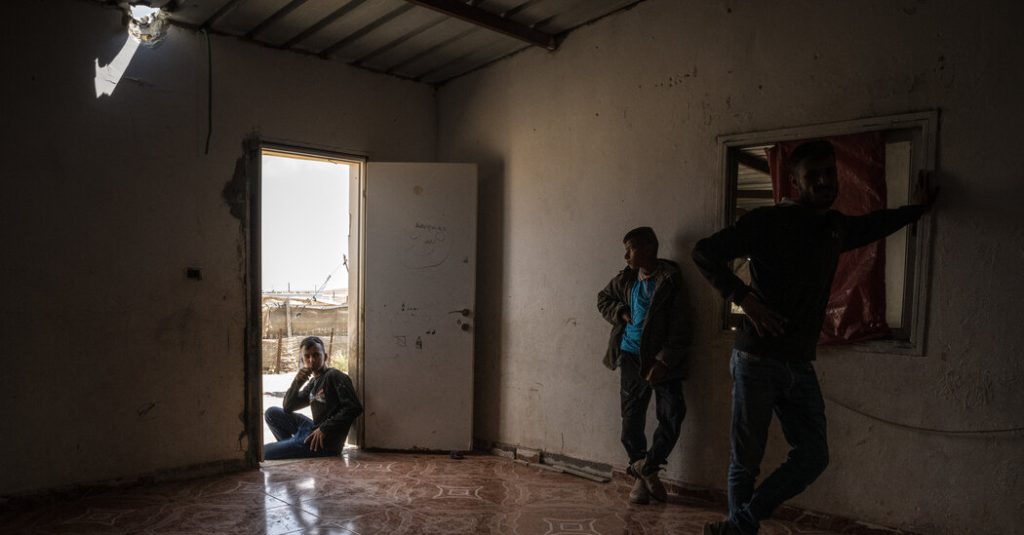The hospital waiting room at Soroka Medical Center in Beersheba, Israel, was quiet on a Sunday after Israel’s air defenses successfully fended off an Iranian attack. However, tension filled the air as a mother stumbled out of the pediatric intensive care unit in tears. Amina al-Hasoni, 7 years old, was the sole serious casualty of the attack. The family, who lived in an unrecognized Bedouin village in the Negev desert, did not have access to bomb shelters or proper infrastructure, putting them at risk.
When the rocket warning sirens went off on Saturday night, Amina’s uncle found her bleeding from a head wound after a missile fragment struck their home. Despite efforts to rush Amina to the hospital over a rough and winding road, she succumbed to her injuries. The family was left devastated, with blood stains cleaned from the home but the emotional scars still fresh. Ismail, Amina’s uncle, expressed frustration at the lack of protection and support for their community, attributing Amina’s tragic fate to government negligence.
More than 150 missile fragments were collected in the area, with police bomb disposal teams working to clear the debris. The Hasoni family felt the impact of the attack on a personal level, as their home was close to a military base targeted by the Iranians. Amina’s father, Muhammad, spent hours at her bedside mourning the loss of his youngest child, a lively and artistic girl who brought joy to her family. He condemned Iran’s actions as inhumane, calling for divine punishment. The family’s grief and anger highlighted larger issues of inequality and vulnerability faced by marginalized communities in Israel.
The attack on Amina’s family underscored the systemic inequities faced by the Arab Bedouin population in the Negev desert, where unrecognized villages lack essential services and infrastructure. The lack of access to bomb shelters and proper planning left vulnerable communities at risk during conflicts. Amina’s tragic death raised questions about the government’s responsibility to protect all its citizens, regardless of their status or background. The family’s experience shed light on the wider disparities and challenges faced by marginalized groups in Israel.
Israeli officials’ response to the attack, which caused minimal damage to the country as a whole, contrasted sharply with the devastating impact on Amina’s family. While the broader crisis was averted, the personal tragedy for the Hasoni family highlighted the deep-rooted issues of neglect and inequality faced by unrecognized Bedouin villages. Ismail’s assertion that Amina’s fate was not just bad luck but a result of systemic policies resonated with the broader context of discrimination and lack of resources for marginalized communities. The family’s grief and anger served as a poignant reminder of the urgent need for addressing these structural inequalities in Israeli society.
As Amina’s family mourned her loss and tried to come to terms with the tragedy, they grappled with the sense of helplessness and injustice in the face of government neglect. Muhammad’s prayers for divine justice and Ismail’s frustration at the lack of support for their community reflected a broader sentiment of anger and disillusionment among marginalized groups in Israel. Amina’s story served as a powerful symbol of the urgent need for systemic change and greater equity in addressing the needs and rights of all citizens, regardless of their background or status. The family’s experience was a stark reminder of the human cost of neglect and discrimination in times of crisis.


